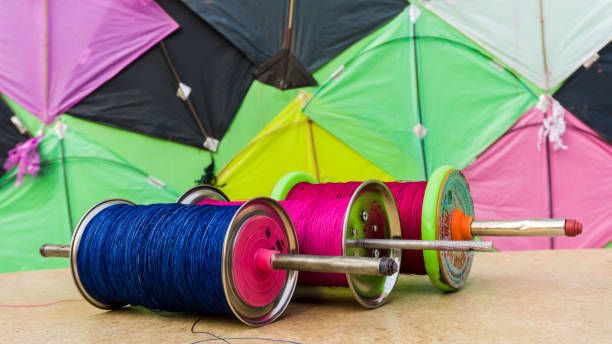Nylon Manja Outlawed In Indian States After PETA’s Appeal


The Animal Welfare Board of India (AWBI), a statutory body of the central government, advised all states and union territories to amend their respective notifications under the Environment (Protection) Act (EPA), 1986, to prohibit all manja, or harmful sharp threads, such as nylon or cotton string coated with glass or metal, and to permit the use of only plain cotton string for kite flying in response to an appeal from People for the Ethical Treatment of Animals (PETA) India.
“We are appreciative of the Animal Welfare Board of India’s recognition of the risks associated with manja, or cotton kite string laced with metal or glass powder. Animals including birds and humans are helpless against such lethal weaponry. If people knew that using only plain cotton kite string would prevent serious injury and death to humans and other animals, then most people would choose to do so” said PETA India Senior Advocacy Officer Farhat Ul Ain.
Manja endangers people, birds, other animals, and the environment in all of its forms. Every year, numerous injuries and needless deaths are caused by razor-sharp strings, which are frequently strengthened with metal or glass powder. Manja frequently chops off a bird’s foot or wing, and when the bird escapes despite the serious wounds, rescuers are unable to assist it, and many of the birds die slowly and agonizingly from bleeding to death. Earlier this year, the sharp threads in Mumbai wounded nearly a hundred birds in just three days.
Manja kills and maims people every year as well. Many deaths have been reported this year in various parts of the nation, including the slaying of a 12-year-old kid in Rajasthan, four individuals (including a 4-year-old child) in Gujarat, a man in Madhya Pradesh, and a 21-year-old man in Maharashtra. The next accident or fatality will happen sooner rather than later.
Manja also degrades the environment and contributes to road accidents, power outages, and power line disruptions, which can impact up to 10,000 people at a time. When cows, bulls, and other animals swallow stray manja—whether it be synthetic or cotton thread coated with dangerous components like glass, metal, or other substances—it does not biodegrade and can have excruciating, even fatal consequences.
The governments of Chandigarh, Haryana, Maharashtra, and Punjab issued notifications after receiving appeals from PETA India, outlawing the notorious nylon “Chinese” manja and glass- and metal-coated “desi” kite string. They also ordered that only plain cotton string be used for kite flying, joining the ranks of other states and union territories that have similar regulations in place, such as Delhi, Himachal Pradesh, Telangana, and Tripura.
For more information, visit PETAIndia.com
Priyanka Dutta
